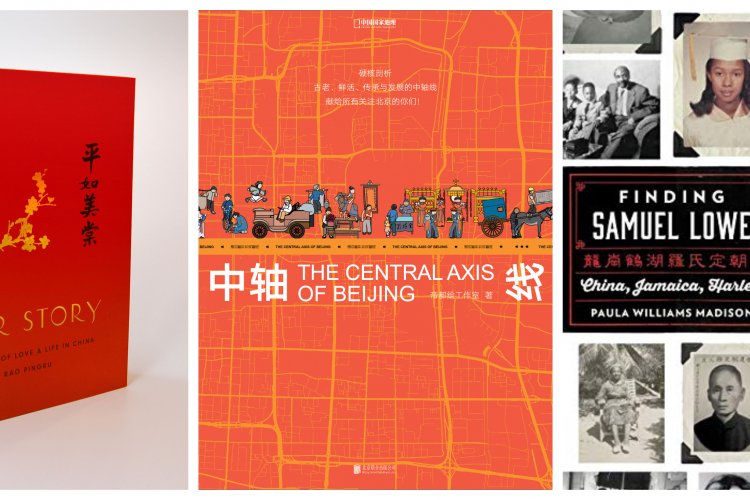Apology Rejected: Apologies to My Censor is Pages of Missed Opportunity
Mitch Moxley, as he likes to remind his reader, is something of a celebrity in Beijing’s expat circles. An aspiring journalist who found himself taking a job with China Daily in the run up to the 2008 Olympics, the trajectory of Moxley’s transition from state-owned media press lackey to freelance writer for publications like Time and The Atlantic, is one that many dream of emulating. This transition rather neatly forms the subject of his first book, Apologies to My Censor.
For those unfamiliar, the fact that Moxley’s book focuses solely on his own personal ups and downs, and not those of the 1.3 billion people around him, should give some indication to the caliber of Moxley’s journalism. His is not the hard-hitting exposes, or the sprawling long-form panorama. Rather, Moxley made his name "chasing the rabbit down the rabbit hole," and sending up the everyday absurdities of the China expat life itself, including writing about being a "Rent a White Guy," and trying to make it in Chollywood – the Chinese film industry.
Detailing Moxley’s first disastrous year at China Daily, Apologies’ opening chapters linger as they try to position the story of his "quarter-life crisis" and how, as the global economic downturn effectively maroons him in China, he gradually overcomes his isolation and begins to pursue his dream of being an international journalist. The details are sluggish, self-absorbed and scattered with the usual clichés: amazement at traffic jams, and masses of "pyjamaed" school children; drinking in dubious, gangster-fronted hell-holes; and making laughable comparisons between Beijing’s expat set and the Lost Generation of 1920’s Paris.
But, for all the narcissism, Moxley comes across as perfectly affable. In fact, one can't help feel a certain warmth for him. It is as though he were some kind of wayward brother. He beguiles you with stories of a life that can seem, at times, completely unbelievable and oddly blessed. When his luck seems to have turned, and he starts to find himself opportunity after opportunity – scouting out sex-trafficking stories in Mongolia, and African labor stories in Guangzhou, an affiliate pride goes along with that. The endearment to him, and his career, is genuine.
Moxley’s affability is also the major problem with Apologies. The writer seems to try so hard to ingratiate the reader into his life and, more specifically, his motivations for eventually shunning socially-conscious journalism in favor of what he calls the more expat-centered "Chinese Neverland" stories. The book can often seem like more of a veiled apology to himself, and his reader, and what he had hoped to realize here in China. When Moxley allows for long passages laying out how he gave into "this photo-shoot" or that "television appearance,"0 instead of following up on his earlier attempts at investigative journalism, the unintended effect often verges on excruciating.
For would-be journalists, the first book is a something of a milestone; an opportunity to relish in a longer form, and stretch one's wings. Yet, for Moxley this first book proves merely a preening exercise. An undoubtedly entertaining, but disappointingly narrow reflection on a relatively unremarkable few years swept up in expat circles that is ultimately a squandered opportunity.
Apologies to My Censor is available for purchase at The Bookworm.
Related stories :
Comments
New comments are displayed first.Comments
![]() Count_zero
Submitted by Guest on Thu, 08/08/2013 - 14:32 Permalink
Count_zero
Submitted by Guest on Thu, 08/08/2013 - 14:32 Permalink
Re: Apology Rejected: Apologies to My Censor is Pages of ...
> disappointingly narrow reflection on a relatively unremarkable few years swept up in expat circles
Exactly. Anyone can work for China Daily and write a first person account of the mundane details. It's just not interesting.
I don't know why people bother writing first-person stuff at all - save it for the blog.
![]() Alex1981
Submitted by Guest on Tue, 08/06/2013 - 18:18 Permalink
Alex1981
Submitted by Guest on Tue, 08/06/2013 - 18:18 Permalink
Re: Apology Rejected: Apologies to My Censor is Pages of ...
yeh, saucer of milk, table 2
![]() GJN
Submitted by Guest on Tue, 08/06/2013 - 17:52 Permalink
GJN
Submitted by Guest on Tue, 08/06/2013 - 17:52 Permalink
Re: Apology Rejected: Apologies to My Censor is Pages of ...
Sounds like the author of this review is a tad bit jealous of Mr. Moxley's success.
Validate your mobile phone number to post comments.

